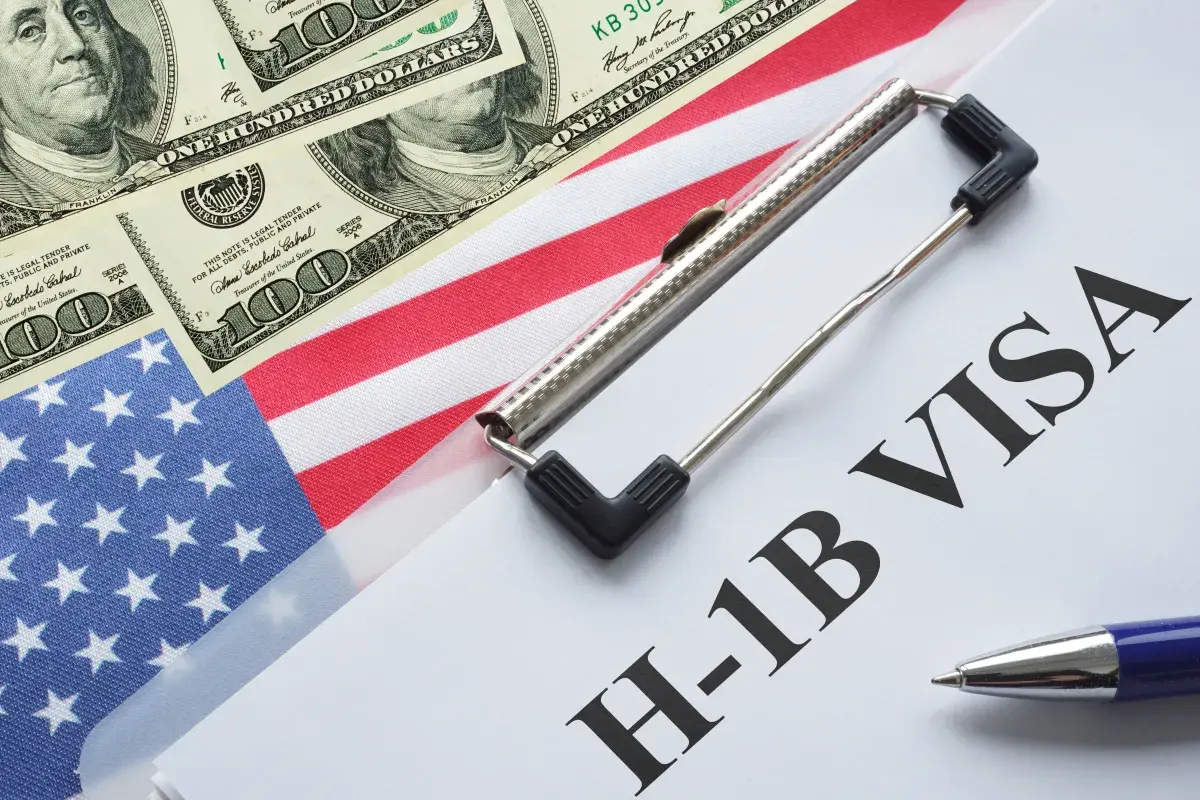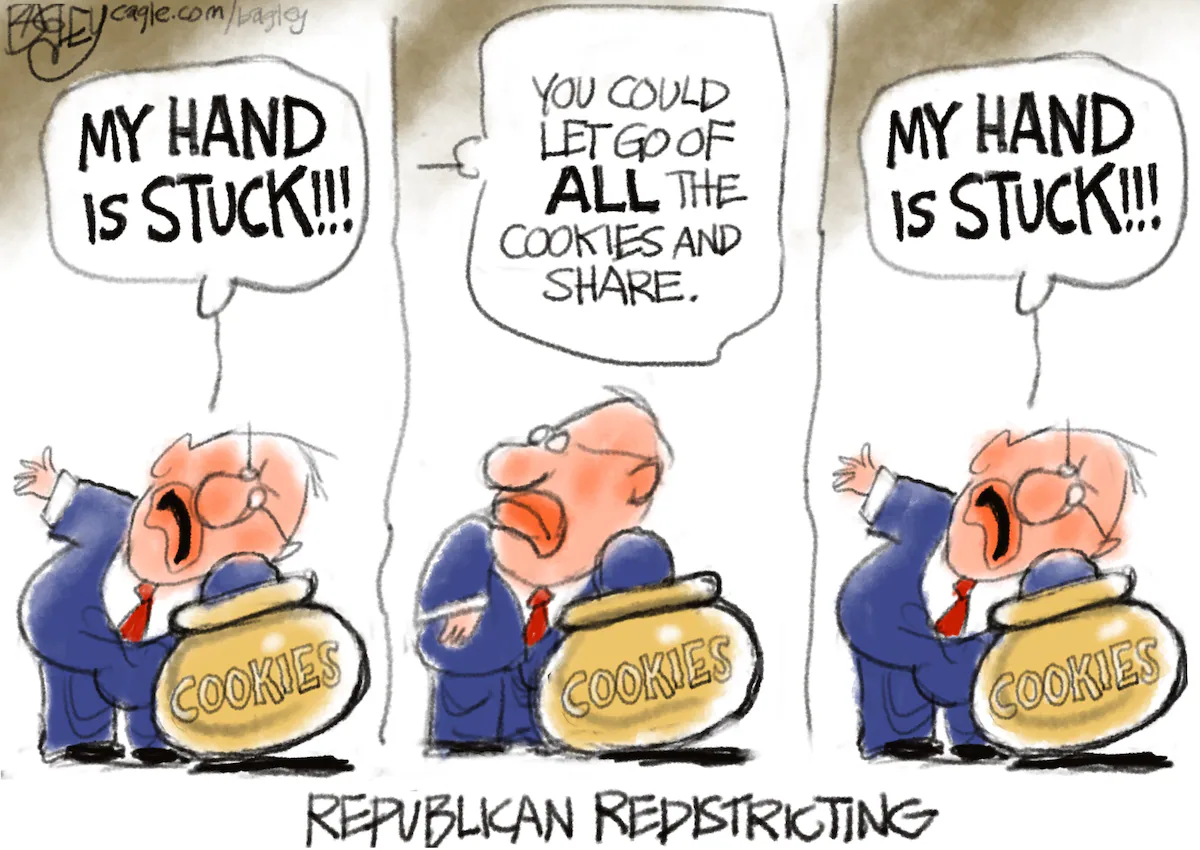Copyright Newsweek

When the U.S. Department of Labor (DOL) announced Project Firewall on September 19, media coverage focused on the press release—a pledge to “protect American jobs” by cracking down on H-1B visa abuse. A month later, the program’s impact is already being felt—not through formal prosecutions, but through the quiet compliance panic spreading across U.S. companies that depend on high-skilled foreign talent. Newsweek spoke to legal experts, immigration attorneys and Department of Labor officials who described how Project Firewall is already reshaping corporate compliance, legal strategy and the balance between enforcement and innovation in America’s high-skilled visa system. Why It Matters Project Firewall marks a turning point in how the United States polices high-skilled immigration. For the first time, the Labor Department can launch its own investigations into H-1B visa use without waiting for worker complaints, shifting the system from reactive to proactive enforcement. That change carries sweeping consequences: Companies face new exposure for past filings; U.S. and foreign workers face greater scrutiny of wages and job placements; and the broader economy could feel the ripple effects as firms consider moving more work offshore. In essence, the initiative tests whether a tougher line on visa compliance can protect American jobs without undermining the innovation those same visas have long supported. What To Know Announced last month, Project Firewall represents the first time in more than three decades that a U.S. labor secretary has pledged to personally certify investigations into suspected H-1B and Labor Condition Application (LCA) violations. An H-1B visa is a U.S. work visa that allows employers to temporarily hire foreign professionals in specialty occupations requiring a bachelor’s degree or higher in a specific field, such as technology, engineering or finance. Under the Project Firewall initiative, the Labor Department can open inquiries based on credible third-party tips—not only formal complaints from workers—and coordinate enforcement with the Department of Justice (DOJ), Equal Employment Opportunity Commission (EEOC) and U.S. Citizenship and Immigration Services (USCIS). In the official press release, U.S. Secretary of Labor Lori Chavez-DeRemer said: “Launching Project Firewall will help us ensure no employers are abusing H-1B visas at the expense of our workforce. By rooting out fraud and abuse, the Department of Labor and our federal partners will ensure that highly skilled jobs go to Americans first.” Officials say it will strengthen interagency data-sharing and expand oversight of wage, posting and displacement requirements for visa sponsors. “This authority has existed for years, but it’s never been exercised,” said Mary Pivec, attorney at Grossman Young & Hammond. “The Secretary has now announced the intent to personally certify investigations into employers suspected of violating H-1B/LCA attestations based on tips received from third parties other than an aggrieved individual.” Penalties can reach up to roughly $51,500 per violation, along with multiyear bans on new visa petitions for willful breaches, according to DOL enforcement guidelines. Project Firewall is designed to be industry-neutral, but early guidance suggests several additional dimensions as its full scope continues to emerge. The Department of Labor may compel employers to repay back wages to affected workers, expand unannounced site visits and audits, and coordinate with the Justice Department’s Civil Rights Division on discrimination or wage-suppression claims. Industry observers note that IT-outsourcing and staffing firms—which rely heavily on H-1B placements—face the greatest scrutiny. Legal analysts also caution that the exact standards for “credible source” tips and secretary certification remain unclear, leaving employers uncertain about when and how investigations might be triggered. Reviving Dormant Powers: A New Legal Frontier However, even before any investigations have been announced, the legal experts that Newsweek has spoken with say employers are already taking defensive steps. Jennifer Behm, partner at Berardi Immigration Law, said Project Firewall “raises the stakes for H-1B compliance. Employers should review both their current practices and past filings, because past behavior could increasingly be under the microscope.” That concern reflects the program’s retroactive reach—investigations may examine prior petitions and pay records, not just new filings. Angelo Paparelli, partner at Vialto Law (US) PLLC, told Newsweek the government is “dusting off” authority that “has been in the law for many years and yet wasn’t used.” “The reason why Project Firewall is interesting,” he said, “is that it revives a long-dormant authority of the Secretary of Labor personally to designate a case for investigation. For decades that power went unused because it required information from a credible source—and the statute forbids using the petition itself as that source. “Now, with Project Firewall, they’re actively soliciting outside complaints so they can trigger those investigations. It’s the first time in modern history they’re dusting off that authority.” For decades, most Labor Department investigations under the H-1B program were complaint-driven and limited to individual cases. Under Project Firewall, probes could now begin from external intelligence—data discrepancies, worker tipoffs or third-party advocacy campaigns. Pivec noted that a website called GuestWorkerVisas.com appears to solicit information on employer practices, potentially creating new referral streams. Christopher Thomas, partner at Holland & Hart LLP, told Bloomberg Law that investigators will “use the full force of the federal government to make a big splash for anyone who they believe is not playing by the rules.” Meanwhile, law firms including Morgan Lewis and Holland & Knight have urged clients to conduct internal audits and prepare for site visits and document requests. Corporate Reaction and Economic Stakes For employers, the combined effect is chilling. Immigration attorneys report a surge in requests for compliance reviews, wage audits and HR training. Although no cases have yet been made public, Paparelli told Newsweek: “We haven’t seen a single named employer yet. But we’re already seeing the deterrent effect. That may be the point.” The stakes are particularly high for the technology and consulting sectors, which rely heavily on H-1B workers. National Foundation for American Policy (NFAP) data shows that denial rates for major IT services firms exceeded 30 percent for initial employment petitions in FY 2019, compared with 2 percent to 7 percent for product-based companies such as Apple and Google. While denials slowed after 2020, the policy environment remains unpredictable. Policy Context The H-1B visa program—which allows U.S. employers to hire foreign professionals in specialty occupations—has long been politically contentious. According to data from NFAP, denial rates for new H-1B petitions rose sharply during the first Trump administration (2017–2021), from 6 percent in FY 2015 to 24 percent in FY 2018 and 21 percent in FY 2019. Requests for Evidence nearly doubled during that period, from 22 percent to 40 percent of cases. Under the Biden administration (2021-2025), denial rates fell to about 4 percent in FY 2021 and roughly 2 percent by FY 2024, reversing the earlier surge. As of October, no official data on FY 2025 adjudications has been released—the first fiscal year of the second Trump term—with NFAP expected to publish new figures in early 2026. NFAP concluded that “USCIS has changed the standards for adjudications without a change in the law or new USCIS regulations,” particularly affecting firms that place workers at client sites. Those standards eased after 2021, but with Project Firewall, enforcement power has shifted from USCIS to the Department of Labor, reflecting a broader “worker-first” orientation across federal agencies. The initiative also coincides with the $100,000 H-1B application fee, introduced September 21, two days after the DOL announcement—a White House move aimed at discouraging bulk filings by staffing and outsourcing firms. Academic Studies Underscore the Risks A 2020 study by Britta Glennon of the University of Pennsylvania, updated in 2023, found that when H-1B caps tightened in 2004, firms dependent on foreign talent increased overseas employment 27 percent more than other firms, especially in India, China and Canada. “When skilled workers can’t get visas to come to the U.S., companies often take the work to them,” Glennon wrote. Earlier research by William Kerr and William Lincoln (NBER) similarly found that greater H-1B admissions increased overall U.S. innovation, mainly through immigrant inventors, while having “limited effects for native science and engineering employment.” Restricting the flow, they warned, risks reducing patenting and technological progress. Conclusion That tension—between enforcement and innovation—now defines the debate over Project Firewall. Supporters call it a long-overdue safeguard against fraud—the era of “checklist compliance” is over; critics fear it could drive investment and talent offshore. For now, the story is less about the government’s first investigation than about how the private sector is bracing for one. Paparelli puts it even simpler: “The message from Project Firewall is clear: review your files before the government does.” What People Are Saying Kate Kalmykov, co-chair of Global Immigration & Compliance Practice at Greenberg Traurig, said: “With Project Firewall, the DOL is sending a clear message: compliance with H-1B program requirements is not optional, employer records will be closely scrutinized, and strict penalties will be imposed on violators. Project Firewall is one of the most aggressive H-1B enforcement initiatives in more than a decade … Employers might expect deeper, faster, and more coordinated investigations that go beyond traditional wage-and-hour audits.” Rajiv S. Khanna, managing attorney at Immigration.com, said: “Status determinations are often complex and sometimes arbitrary. Months later, USCIS can find a status violation that was not anticipated, resulting in a $100,000 bill!” Xiao Wang, CEO of Boundless, commenting on the linkage between the H-1B fee and Project Firewall, said: “This new fee for H-1Bs outside of the U.S. acts essentially like a tariff.” What Happens Next In the coming months, Project Firewall is expected to move from setup to action, with the Department of Labor preparing its first proactive investigations under the secretary’s revived authority. The agency is building data-sharing links with the Justice Department, EEOC and USCIS to target potential violations, while employers brace for audits and possible legal tests of how far that power extends. Immigration lawyers predict that an early, high-profile case will be used to set precedent and signal deterrence, even as industry groups warn that tighter enforcement and new visa costs could drive more high-skilled work abroad. What happens next will determine whether Project Firewall becomes a lasting enforcement model or simply another cycle of short-term crackdowns in America’s immigration policy.



